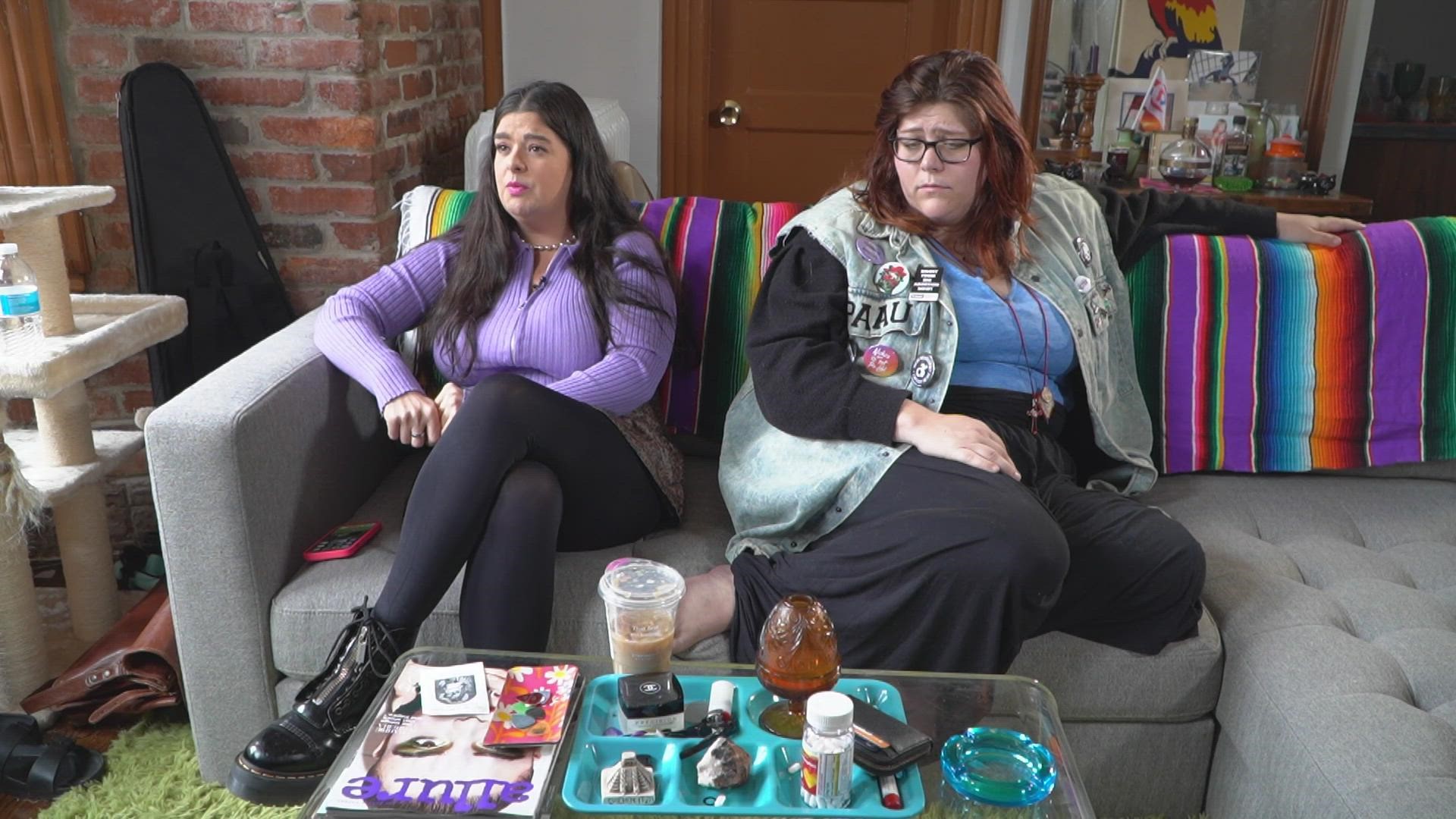WASHINGTON — The lead defendant of a group of anti-abortion activists charged with blockading a D.C. clinic in 2020 wants a judge to allow her to show a jury graphic images of fetal remains she claims were obtained from that same facility a year-and-a-half later.
In an exhibit list filed earlier this month, attorneys for Lauren Handy told U.S. District Judge Colleen Kollar-Kotelly they may seek to offer as evidence photos of five fetal remains Handy claims she recovered from a waste disposal truck outside of the Washington Surgi-Clinic last March. The remains are a small portion of the 115 fetuses Handy and members of her activist group, Progressive Anti-Abortion Uprising (PAAU), claim to have obtained from a medical waste company employee and stored at her Capitol Hill home.
The clinic’s waste contractor, Curtis Bay Medical Waste Services, has denied that it transports fetal remains, telling WUSA9 last year its employees are prohibited from doing so by company policy. No charges have ever been filed in connection with the fetal remains, which DC Police last year said appeared to have been aborted in accordance with D.C. law. The Washington Surgi-Clinic has repeatedly declined to comment to WUSA9 about Handy's claims.
Handy and nine co-defendants were indicted in March 2022 with conspiracy against rights and clinic access obstruction in violation of the federal FACE Act (Freedom of Access to Clinic Entrances). The indictment alleged Handy made an appointment at the Washington Surgi-Clinic on F Street NW in October 2020 under a false name. Prosecutors say she and other activists then forced their way into the clinic and used chains and rope to block the entrance, in the process knocking a clinic employee over and injuring her ankle. Handy claims her group obtained the remains from the same clinic approximately 15 months later.
Given the significant time gap between when the alleged crimes occurred and when Handy says she received the fetal remains, her lawyers – Martin A. Cannon, an attorney with the anti-abortion law firm The Thomas More Society, and Dennis E. Boyle, a criminal defense and civil rights attorney with the law firm of Boyle & Jasari – may have an uphill battle in convincing the judge they are admissible as evidence.
“There’s a few issues,” said Neama Rahmani, a former federal prosecutor who is now the president of West Coast Trial Lawyers. “One is relevance, right? I’m sure the Department of Justice is going to object to these pictures. There’s no relevance whatsoever. And the second issue is, how are they going to authenticate them? Who’s going to come and say these are true and accurate depictions of what were found?”
Along with their exhibit list, Cannon and Boyle filed subpoenas for testimony from D.C. Chief Medical Examiner Francisco Diaz, the general counsel for the Office of the Chief Medical Examiner (OCME) and Washington Surgi-Clinic’s Dr. Cesare Santangelo. Rahmani said all three could likely get those subpoenas quashed on relevance grounds. A spokesperson said OCME general counsel Rodney Adams was not available for comment.
Even if Kollar-Kotelly found the pictures and testimony relevant to the case, Rahmani said, prosecutors could still seek to exclude it from the trial under a separate federal rule dealing with prejudicial evidence.
“There’s a rule of evidence, 403, that says even relevant evidence should be excluded if the probative value is outweighed by potential prejudice, confusion of the issues or misleading the jury,” he said.
Cannon and Boyle did not respond to repeated requests for comment. However, other court filings indicate Handy and her co-defendants may seek to argue their actions were justified. In proposed jury instructions submitted earlier this month, Cannon and Boyle asked for a “necessity” instruction telling jurors Handy’s “otherwise criminal conduct may be excused if… she acted to prevent imminent harm” or if she was faced with a choice of evils and chose the lesser evil. Another co-defendant, Heather Idoni, has asked for a self-defense instruction and indicated she intends to take the stand and argue she “believes unborn children are legal persons.” Kollar-Kotelly has given the Justice Department until July 20 to respond to Idoni’s filing.
The Supreme Court has, as recently as October, declined to weigh in on the legal question of fetal personhood. Writing for the majority in the court’s landmark Dobbs v. Jackson Women’s Health Organization decision last June, Justice Samuel Alito said the holding did not express “any view about if and when prenatal life is entitled to any of the rights enjoyed after birth.”
The group is scheduled to begin a jury trial in D.C. District Court on Aug. 9. In a 50-page exhibit list filed last week, the government said it will seek to prove its case through security footage, livestreams filmed by the defendants and jailhouse calls between Handy and another defendant, Herb Geraghty. Prosecutors may also seek to enter evidence about Handy’s prior convictions for trespassing at other clinics. Last July, Handy was ordered to serve 30 days in jail for trespassing at an Alexandria women’s clinic in 2021. Four months later, Handy was sentenced to 45 days in jail for obstructing a Michigan clinic’s operations in 2019. Handy was also ordered by Kollar-Kotelly in February not to “conspire, plan, instruct, assist, abet, direct, or otherwise aid in any way” others from entering reproductive services clinics after she acknowledged she’d planned two additional clinic invasions while on pretrial release.

